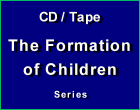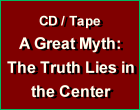Formation of Children
 |
 |
 |
 |
 |
 |
 |
On the Education of Children – I
A Man’s Future Relies on
What He Received as a Child
In August 2013, the Vatican Apostleship of Prayer released a commentary on Catholic parents’ responsibility to educate their children. In it were many progressivist messages and little sound teaching.
For example, parents were told that a primary mission was to be “witnesses of responsible solidarity” and that they must be the “living witness to the human and humanizing warmth which every child has a right to receive.” Nothing was said about the duty to teach children to practice the Ten Commandments, the Catholic Faith and Morals.
In view of this lacuna, we thought it convenient to reproduce here the advice for parents of St. Alphonsus Marie Liguori (Church Doctor, 1696-1787), who was commenting on the Gospel verse "A good tree cannot bring forth evil fruit, neither can an evil tree bring forth good fruit." (Mt 7:18)
In the first part of his sermon, reproduced below, he teaches how important it is to bring up children in habits of virtue.
For example, parents were told that a primary mission was to be “witnesses of responsible solidarity” and that they must be the “living witness to the human and humanizing warmth which every child has a right to receive.” Nothing was said about the duty to teach children to practice the Ten Commandments, the Catholic Faith and Morals.
In view of this lacuna, we thought it convenient to reproduce here the advice for parents of St. Alphonsus Marie Liguori (Church Doctor, 1696-1787), who was commenting on the Gospel verse "A good tree cannot bring forth evil fruit, neither can an evil tree bring forth good fruit." (Mt 7:18)
In the first part of his sermon, reproduced below, he teaches how important it is to bring up children in habits of virtue.
Then the Gospel of this day tells us, that a good plant cannot produce bad fruit, and that a bad one cannot produce good fruit. Learn from this, brethren, that a good father brings up good children. But, if parents are wicked, how can the children be virtuous?
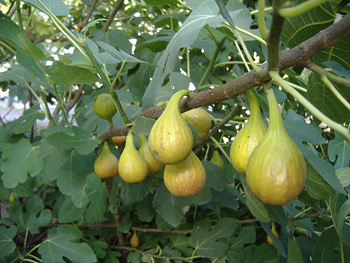
Good fruit can only come from a good and healthy tree
Fathers and mothers, you must be attentive to this sermon, which is of great importance to the eternal salvation of yourselves and of your children. Be attentive, young men and young women, who have not yet chosen a state of life. If you wish to marry, learn this day the obligations that you can contract with regard to the education of your children; and learn also that, if you do not fulfill them, you shall bring yourselves and all your children to damnation.
I will divide this sermon into two points.
In the first, I will show how important is to bring up children in habits of virtue; and in the second, I will show with what care and diligence a parent ought to labor to bring them up well.
First Point: How very important it is to bring up children in habits of virtue
1. A father owes two obligations to his children: He is bound to provide for their corporal wants, and to educate them in the habits of virtue. It is not necessary at present to say more on the first obligation than that there are some fathers more cruel than the most ferocious of wild beasts, for these do not forget to nourish their offspring. Indeed, certain parents squander away all their property or fruits of their industry by drinking and gambling, and allow their children to die of hunger. But let us come to the education, which is the subject of my discourse.
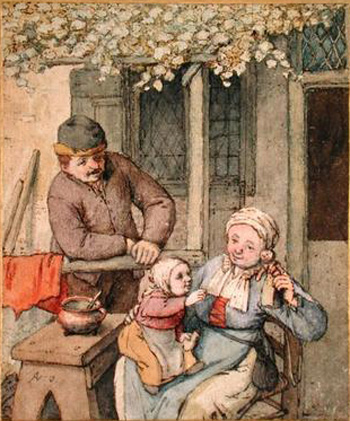
A child is given to parents as a trust for which they must render an account to God
"We have," says St. Chrysostom, "a great investment in our children; let us attend to them with great care." (Homily IX, in 1 ad Tit.)
Children have not been given to parents as a present, which they may dispose of as they please, but as a trust, for which, if lost through their negligence they must render an account to God.
The Scripture tells us, that when a father observes the divine law, both he and his children shall prosper. "That it may be well with thee and thy children after thee, when thou shalt do that which is pleasing in the sight of God." (Deut 12:25)
But when we find a son addicted to blasphemies, to obscenities and to theft, we have reason to suspect that such too was the character of the father: "For a man is known by his children." (Eccl 11:30)
3. Hence Origen says that on the day of the judgment parents will have to render an account for all the sins of their children. (Grig., Lib. 2, in Job.) Hence, he who teaches his son to live well shall die a happy and tranquil death: "He that teaches his son well ... when he died he was not sorrowful, neither was he confounded." (Eccl. 30: 3, 5) And he shall save his soul by means of his children; that is, by the virtuous education he has given them: "She shall be saved through child-bearing." (1 Tim. 2:15)
But, on the other hand, a very uneasy and unhappy death shall be the lot of those who have labored only to increase the possessions or to multiply the honors of their family. Or who have sought only to lead a life of ease and pleasure, but have not watched over the morals of their children. St. Paul says that such parents are worse than infidels: "But if any man hath not care of his own, and especially of those of his house, he hath denied the faith, and is worse than an infidel." (1 Tim 5: 8)
"Were fathers or mothers to lead a life of piety and continual prayer, and to communicate every day, they should be damned if they neglected the care of their children,” says St. Chrysostom. “Certain parents paid less attention to their children than they do to their horses! How careful are they to see that their horses are fed and well trained! And they take no pains to make their children attend Catechism, hear Mass, or go to confession. We take more care of our asses and horses, than of our children." (Homily X., in Mt)
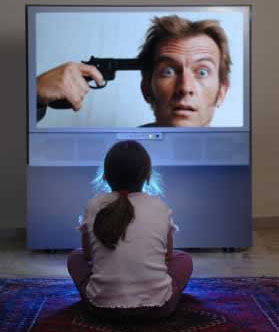
Allowing television to a child is to deliver him to all the vices
"By the bad education parents give to their offspring, they cause their children - says St. Chrysostom - to rush into many grievous vices; and thus they deliver them up to the hands of the executioner." (Sermon, XX., de divers.)
Hence, in Lacedemon, a parent, as being the cause of all the irregularities of his children, was justly punished for their crimes with greater severity than the children themselves.
Great indeed is the misfortune of the child that has vicious parents, who are incapable of forming their children in the fear of God, and who, when they see their children engaged in dangerous friendships and in quarrels, instead of correcting and chastising them, rather take compassion on them, and say: "What can be done? They are young; they must take their course."
Oh! What wicked maxims! What a cruel education! Do you hope that when your children grow up they shall become saints?
Listen to what Solomon says : "A young man, according to his way, even when he is old, he will not depart from it." (Prov 22: 6) A young man who has contracted a habit of sin will not abandon it even in his old age.
"His bones," says Job, "shall be filled with the vices of his youth, and they shall sleep with him in the dust." (Job 20: 11) When a young person has lived in evil habits, his bones shall be filled with the vices of his youth, so that he shall carry them with him to death. And the impurities, blasphemies and hatred to which he was accustomed in his youth shall accompany him to the grave, and shall sleep with him after his bones will be reduced to dust and ashes. It is very easy, when they are small, to train up children to habits of virtue; but, when they have come to manhood, it is equally difficult to correct them, if they have learned habits of vice.
Continued

From St. Alphonsus Liguori, "On the Education of Children,"
Sermons of St. Alphonsus Liguori, Sermon 36,
Seventh Sunday after Pentecost,Vatican Radio Report
Posted August 17, 2013
Sermons of St. Alphonsus Liguori, Sermon 36,
Seventh Sunday after Pentecost,Vatican Radio Report
Posted August 17, 2013
______________________
______________________






